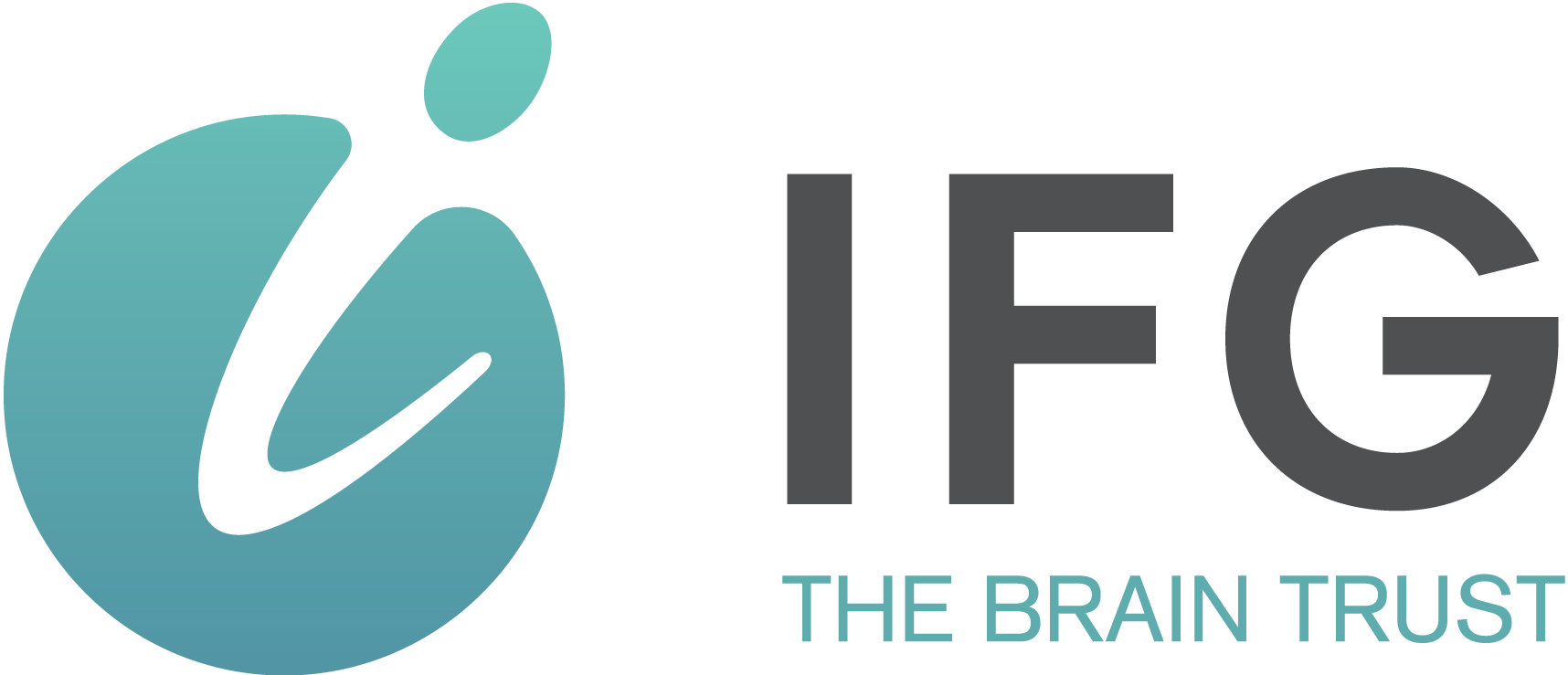- September 8, 2023
Going Independent as a Financial Planner: Should I Stay or Should I Go?

You’ve got a vision of what you want your practice to be. The corporate environment is too restrictive to really deliver the experience your clients want from you. You want more for yourself, your people and your followers. But going independent as a financial planner can feel a little overwhelming
“A good advisor knows their strengths…A great advisor knows their limitations.”
You know you want to build equity in your own client relationships and your practice. You want to own your own firm. But knowing what you want is only half the battle. Admitting that you don’t know what you don’t know is the other half.
In this blog, we’ll go over the steps it takes to make the transition to become an independent financial planner, the benefits of independence, tips for your transition and finally – how IFG can help you.
According to a recent study, an impressive 38 percent of assets managed by advisors are now held by independent advisors, showing a notable increase of 6 percent over the past decade. (DiamondConsultants)
Making the Transition to an Independent Financial Practice
Wanting to go independent as a financial planner can seem like an overwhelming decision. After all, there’s so much to consider and weigh before making any big leap of faith – especially one that could impact the rest of your career and life.
Should you stay with a financial institution or set sail in uncharted waters? Before you take the plunge into independence, it’s important to understand all of the benefits and drawbacks that come with making such a major transition.

5 Benefits of Going Independent
1. Independence and Autonomy
One of the biggest benefits of going independent is the freedom to work for yourself. You have the power to make your own decisions and create your own schedule. This independence allows you to tailor financial planner services to your clients’ needs, rather than worrying about corporate goals or quotas.
Plus, you have the autonomy to choose the products and services that are right for your clients, rather than being restricted by a larger institution’s policies or affiliations.
2. Better Earnings
Financial planners who choose to go independent typically earn a higher percentage of the revenue they create compared to those who work for larger corporations. When working for larger institutions you could be making half or less of what you would if you were independent. Not to mention, you can also diversify your streams of revenue as you are free to create your own sources of income.
3. Greater Client Focus
As an independent financial planner, your main focus is on your client’s best interest. You can customize services based on each individual client’s needs and objectives. Financial institutions are often more concerned with their own bottom line than their clients, which can sometimes lead to them offering products or services that clients might not need.
As an independent financial planner, you have leveled the playing field and your client’s needs are your top priority.
4. Stronger Relationships
When operating as an independent financial planner, it is much easier to form and maintain strong relationships with each client. Clients tend to be more comfortable sharing their financial situations and concerns in a setting where they are not being sold a product.
According to the Charles Schwab 2021 Independent Advisor Outlook Study, an overwhelming 94% of advisors expressed their motivation to become a Registered Investment Advisor (RIA) stemming from a deep commitment to acting in the best interest of their clients. Interestingly, 73% also viewed this career path as an opportunity to cultivate stronger and more enduring relationships with customers.
5. Flexibility
Going independent means you have the freedom and flexibility to serve your clients’ needs in the way you see fit, whether that means taking on more complex investments or providing a more personalized service.
As an independent financial planner, you’re in the driver’s seat of your own career and can make the decision you feel is best. You are no longer bound by the restrictions of a large firm, and you can make decisions more easily. You are free to think outside the box and develop new strategies that meet your clients’ unique goals.
You have more leeway to customize your services, so your clients get the attention they deserve. You can also be more proactive and reach out to clients more frequently, so you stay top of mind. In short, going independent as a financial planner gives you the freedom to do what you do best: help your clients achieve their financial goals.

6 Tips for Your Transition to Becoming an Independent Financial Planner
1. Determine your niche.
Before taking the plunge, it’s essential to determine your niche and specialization. What type of clients do you enjoy working with? What kind of financial planning services do you want to offer? Are there any particular financial planning tools you excel at? By honing in on your niche, you can more effectively attract your ideal clients and stand out from the competition.
2. Build a strong referral network.
One of the most challenging aspects of going independent as a financial planner is building your client base from scratch. To do this, you need to have a robust network of contacts and begin building relationships with potential clients. This might involve attending industry conferences and seminars, reaching out to colleagues, focusing hard on your marketing strategies or using social media to connect with individuals in your target audience.
3. Get the right certifications and licenses.
In order to practice financial planning as an independent advisor, you need to have the proper certifications and licenses. This may include a CFP certification, as well as any other licenses required by your state. It’s important to stay up-to-date with the changing regulations and requirements in order to ensure that you are always compliant.
4. Build your brand.
As an independent financial planner, you are your brand. It’s important to establish a strong, professional image that reflects your values and expertise. This might include having a polished website, designing business cards and other marketing materials, and leveraging social media and other digital platforms to build your online presence.
5. Cultivate a growth mindset.
Going independent can be challenging, but it’s also an opportunity to grow and develop your skills. It’s important to maintain a growth mindset and constantly seek out new opportunities to improve yourself and your business. This might include attending industry conferences, taking on new clients with different needs, or even partnering with other financial professionals to expand your services.
6. Find the right partnership.
As a financial planner, you understand the importance of tailored solutions to meet your clients’ investment objectives. Why not ease yourself into independence with a personalized partnership that supports your business goals?
Consider working with a partner who can offer resources and support for the aspects of your practice that fall outside of your area of expertise. This partner may be another independent financial planner, a broker-dealer firm, or another organization (like Integrated Financial Group) that works with financial planners.
By working with the right strategic partner, independent financial planners can access tools and resources that can help them be more efficient and effective, while also benefiting from the support and encouragement of others in the industry. This can be especially helpful for those who are just starting out in their career as an independent financial advisor, as it can help them build a strong foundation and establish themselves in the industry.

Step by Step Breakdown to Going Independent as a Financial Advisor
If you’re deeply considering making the transition to independence, we’ve got you covered. The following is a step-by-step breakdown of everything you should consider when making your transition.
Step 1: Preparing and planning
When it comes to navigating the planning process, proper preparation is key. Understanding the importance of a smooth transition, there is a wide range of areas to consider under the umbrella of “planning.” To kickstart your journey, it’s vital to get organized.
First things first, determine the date of your resignation and create a timeline for your transition. This will help you stay on track and ensure a seamless handover. Additionally, take the opportunity to organize and update your existing client list. Keeping your contacts and information up to date will support a smoother transition for both you and your clients.
Equally important is sharing the news with your team members. Open and transparent communication is crucial, and your continuing team members should be kept in the loop about your plans.
Collaborating with the right partner is paramount during this process. Selecting a partner who can provide tailored guidance, a comprehensive roadmap, and a curated network of contacts and resources will allow you to fully focus on running your practice efficiently and effectively.
Moreover, expert business consultants can offer valuable insights by analyzing your business and evaluating your strengths. This evaluation will help identify and mitigate potential risks while also uncovering new opportunities for future success. Whether it’s before or after transitioning, relying on their expertise will contribute to a smooth and prosperous journey for your business.

Step 2: Sorting out compliance issues and regulations
When it comes to navigating compliance issues and staying up-to-date with evolving regulations, financial advisors planning to transition must be well-versed in their current firm’s legal obligations and agreements, specifically as they pertain to their existing book of business.
Throughout the transition planning process, having access to legal guidance and support is crucial. Here are several key considerations that must be addressed:
License Update and Transfer:
Having a well-defined plan to update and transfer relevant licenses is essential. This ensures compliance with regulatory requirements while facilitating a smooth transition to the new firm.
Client Data Access:
Under ‘Broker Protocol’ regulations, it is important to determine the extent of client data that can be legally accessed and utilized. Understanding the rules surrounding this aspect is vital during the transition process.
Regulatory Updates:
Staying current with any regulatory updates or changes related to transitions is essential. Being aware of new regulations and regulatory developments allows for proactive compliance and seamless navigation of the transition.
Choosing the right partner to support you during this transition is of utmost importance. Look for a partner that offers the following:
Compliance Services:
Ensure that your chosen partner prioritizes your compliance by providing comprehensive compliance services. This includes training, expert knowledge, and automated processes, tools, and technology to ensure you remain legally compliant without losing excessive time and resources.
Education and Growth:
Select a partner that offers ongoing training and learning experiences to keep your practice evolving and growing. This includes staying abreast of changes in technology, trends, markets, regulations, and client expectations.
By addressing these considerations and partnering with the right firm, financial advisors can navigate the legal aspects of transitioning smoothly and efficiently.
Step 3: Managing client relationships
Your clients put their trust in you and highly value your guidance. It’s highly likely that they will choose to follow you to your new independent practice.
However, they may have concerns regarding how this transition will impact their communication with you, their investments, and their costs. Before reaching out to the investing clients you hope to bring along, it is important to have a strategic plan in place:
- Identify the clients you wish to continue working with and those you do not.
- Prioritize your contact list and be ready to address any questions or uncertainties your clients might have about your decision to change firms.
- Develop comprehensive plans specifically tailored for clients who wish to retain your services as their financial advisor.
Moreover, it is crucial to select the right transitioning partner who can offer the following:
- Access to technology solutions that provide advisors with a wide range of tools to meet their clients’ investment goals, alongside a diverse set of options.
- Exceptional service and support to navigate any challenges that may arise during the transitional onboarding process. With an efficient and specialized team of service professionals, advisors can keep their clients well-informed and confident at every step.
By selecting a reliable partner like IFG and implementing a well-thought-out strategy, your continuing clients will enjoy the same level of support that you and your team receive.

Go Independent with Integrated Financial Group
Choosing the right partner should be a well-informed decision, as crucial as the reasons that led to considering a transition in the first place. At IFG, we are committed to delivering unique and comprehensive solutions that align with your vision and aspirations.
If you’re ready to take the leap of faith and go independent, IFG can help.
Clearly, brains on top is what got you to where you are. Brains on tap is what can get you the rest of the way.
IFG is a wholistic resource center that allows you to custom-tailor your vision of independence with a wide variety of á la carte menu selections to help exemplify what you do best and fill in the gaps where you might need some help. It’s the best of both worlds. You can have all the benefits of being associated with a national brand and top 25 financial advisory firm with your hands on the wheel steering your own future.
IFG gives you the freedom to leverage our specialized Infrastructure Support Teams…
- Our dedicated Compliance Teams are here to free your time and money by helping your firm comply with rules and regulations without having to hire internal staff.
- Our Marketing Teams can assist with the design, build and implementation of your digital platform and help deliver a winning on-line strategy.
- IFG can even help with your transition including planning the move, turnkey technology setup and implementation and even office space solutions.
- Once your set up and operating, IFG provides support solutions for human resources, group health and benefit planning and much more.
At IFG, we want you to be independent, but not alone. When you join our team, you’ll be part of a financial advisory business consortium of like-minded men and women that fight the same fights and share the same struggles that you do.
MasterMind Groups meet on a regular basis to share ideas and best practices. IFG’s national conference is highly regarded as one of the best financial advisor retreats in the industry. The IFG Brain Trust believes that sharing knowledge in a peer-to-peer setting is the best way to grow and prosper.
Your decision to go independent is not one to be made lightly. Knowing that you can have all the benefits of a big box firm and the flexibility to bring your vision into reality with all the tools and support necessary to ensure your ongoing success should help make this important choice a little easier.
Don’t take our word for it. Come see for yourself. We would be happy to have a private consultation, introduce you to IFG financial advisors and staff and let you feel for yourself what the Brain Trust is all about.

